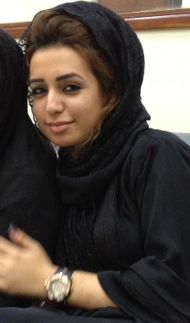We’re living in a time in which social media plays a crucial role in our lives, whether digitizing human interactions, making us more/less connected, or even mobilizing revolutions. Whatever it is, we cannot deny the fact that we’re being grasping a double-edged sword.
As with any other type of technology, the way it’s received and treated has implications for ours and every culture. Thus, censorship policies surrounding this medium will vary from place to place. Researchers and theorists are eagerly waiting for the impact of the digitized culture.
I am a person fascinated with social media and human behavior, so I take my time examining cases that occur from time to time. One of the most interesting and recent ones concerns Hamza Kashgari, a young Saudi man who was philosophically, almost casually ruminating via Twitter on Prophet Mohammed’s birthday (February 4 last year), when his tweets were received negatively by an un-amused audience.
People across the Twitter world started talking and siding (just as in the bigger picture of Saudi’s society: liberal and conservative) by either defending or scorning him. When the 19-year-old kid sensed the gathering danger, his family encouraged him to flee the country because people were actually calling for his blood.
He did leave, but due to international extradition regulations he was handed back to the Saudi government which immediately put him in prison, where he remains today. It has been a year since, but there has been no trial yet.
What’s particularly interesting about Hamza’s case is the fact that if you look at it closely you’ll see that it’s really not about the content of his tweets as much as it is the government’s deliberate use of his case to serve as a demonstration-lesson for his peers.
Hamza Kashegri’s unfair detention is a slap in the face of Saudi youth, and I’m not claiming this out of nowhere. After all, according to Sharia Law, in case of declaring Tawbah (redemption) you should be granted forgiveness, and Hamza did get his (Tawbah) but that didn’t lead to step two because the government feels it is in a sensitive situation: It doesn’t want to let the case go without sending out a strong message, but they do not want to sentence him to death and cause international rage. At the same time, the government knows that releasing him will enrage uptight religious groups. So what to do?!
So a cautionary note is warranted here: In an age where social media has given every individual a voice for his/her inner self, one should find him/herself alerted when trying to use this new right. Especially in societies where the synonym of the word philosopher is not “thinker,” rather, it is “skeptic.”
This is a case that I find to be close to my heart because I know how it feels to be received wrongly – and how it is when your thoughts are interpreted as they “think” – despite the fact that interpretation is so relevant to each mindset.
Editors note: After nearly two years in prison, Kashgari was freed on October 29, 2013. Kashgari used Twitter to inform his supporters of his release. Kashgari’s lawyer, Abdul Rahman Allahim, confirmed the release in another tweet. He returned home where he was reunited with his mother.

